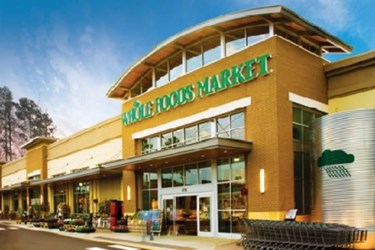Whole Foods Market Cutting Costs And Recycling Wastes With New Disposal System
By Megan Zielinski, contributing writer

In May, Whole Foods Market will be utilizing a unique machine in their Bellevue, WA store, developed by bio-clean technology company, WISErg Corporation, enabling the environmentally friendly retailer to track data of waste and resourcefully dispose of scraps to the environment.
With the “Harvester,” Whole Foods Market will be capable of combining outdated perishable foods and produce, blending it into a nutrient-rich liquid, providing it to local farmers for fertilizing crops, living up to the company’s commitment of practicing environmental stewardship as Whole Foods Market states, “We respect our environment and recycle, reuse, and reduce our waste wherever and whenever we can.” The machine will allow for a worthy cycle of use from leftovers originating in the store. The Harvester is neighborhood-friendly as the machine is clean, odor free, inaccessible to pests and quiet compared to conventional composting methods. The tank can process up to 4,000 pounds daily of scraps coming from meats, bones, produce, flowers, compostable paper products, and fats and oils.
Along with giving back to the earth, the Harvester will collect data of the volume of scraps collected by department with each load, providing Whole Foods Market with analytic reports—allowing for proper adjustments to be made to inventory, saving the company from the cost of waste. “The Harvester’s mission is to help business reduce inventory loss by giving insight into root causes of food waste and preventing excess overstock,” WISErg stated. Usage of the machine will be monitored closely by WISErg Corporation to allow for scheduled servicing of the system and tracking food disposal trends within the stores.
The USDA estimated that grocers lose $15 billion each year in costs throwing out bruised, blemished fruits and vegetables alone. Jonathon Bloom, author of American Wasteland, estimated that a total of $250 billion worth of food in the U.S is lost between farming, to processing, and finally to the grocery store. Leftovers and uneaten items account for 21 percent of landfill waste, emitting high percentages of total methane emissions and costing billions in costs of transportation and dumping into landfills.
